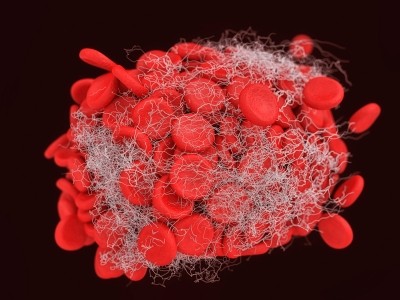Natto enzyme may reduce Alzheimer’s risk: Study

The enzyme was found to be able to degrade amyloid fibrils that contribute to the formation of amyloid plaque that characterize Alzheimer’s disease, according to results of a lab study published in the Journal of Agricultural and Food Chemistry.
“The discovery of an enzyme which can be safely taken orally and can degrade amyloid fibrils could be very useful in the therapy of amyloid-related diseases,” wrote the researchers from Taiwan’s Institute of Biological Chemistry, Academia Sinica, and the National Taiwan University.
The build-up of plaque from beta-amyloid deposits is associated with an increase in brain cell damage and death from oxidative stress. This is related to a loss of cognitive function and an increased risk of Alzheimer's, the most common form of dementia and currently affects over 13 million people worldwide.
The direct and indirect cost of Alzheimer care is over $100 bn (€ 81 bn) in the US, while direct costs in the UK are estimated at £15 bn (€ 22 bn).
At SupplySide West in Las Vegas last year, Vincent Hackel, CEO and president of Japan Bio Science Laboratory-USA, told NutraIngredients that growth in nattokinase supplements was doubling every year. “Nattokinase is right on the cusp of taking off,” he said. JBSL-USA’s nattokinase was not used in the Taiwanese study.
The majority of science has focused on reducing blood pressure and the prevention of blood clots. According to Hackel, nattokinase supplements have been available in the US for about five years and for two years in Europe.
“Although much research has been carried out on nattokinase, there has been no interest in whether it can degrade amyloids, which are also highly insoluble and protease-resistant,” explained the researcher.
Study details
In order to begin to fill the knowledge gaps in the nattokinase-amyloid plaque science, Ruei-Lin Hsu and co-workers explored if the enzyme possessed any action against three types of fibrils: A-beta-40 fibrils, linked to Alzheimer's; insulin fibrils, linked to diabetic complications; and prion peptide fibrils, responsible for prion diseases.
The researchers report that nattokinase was able to degrade all three different amyloid fibrils.
Being one of the first studies to look at the role of the natto-derived enzyme and amyloid plaques, more research is needed. The researchers called for animal studies to explore the “therapeutic potential of nattokinase”. They note that the enzyme could be administered as an injection, or as part of a feeding trial, either as part of natto or as purified nattokinase.
“Since natto has been ingested by humans for a long time, it would be worthwhile to carry out an epidemiological study on the rate of occurrence of various amyloid-related diseases in a population regularly consuming natto,” they concluded.
Source: Journal of Agricultural and Food Chemistry 2009, Volume 57, Issue 2, Pages 503-508, doi: 10.1021/jf803072r“Amyloid-Degrading Ability of Nattokinase from Bacillus subtilis Natto”Authors: R.-L. Hsu, K.-T. Lee, J.-H. Wang, L.Y.-L. Lee, R.P.-Y. Chen













